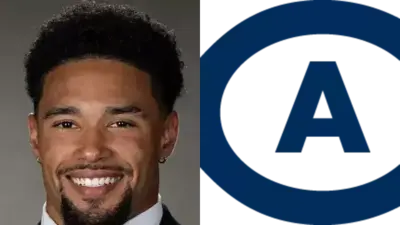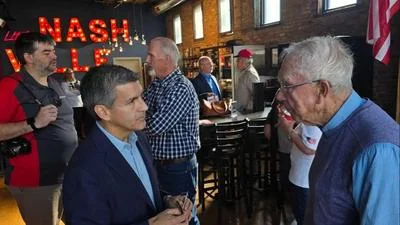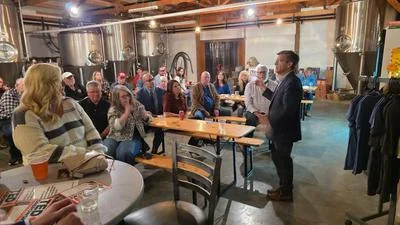City of Carbondale Liquor Advisory Board met February 1.
Here is the minutes provided by the Board:
The City of Carbondale’s Liquor Advisory Board held a meeting on Thursday, February 1, 2018, in Room 103 of Carbondale City Hall, 200 South Illinois Avenue. Chairman Monty called the meeting to order at 5:30 p.m. with the following-named members of the Board present/absent:
1. Roll Call
Present: Mark Robinson, Steve Payne (ex officio), Tasis Karayiannis, David Cisco, and Donald Monty
Absent: John Mills, Henry Webber, and Taylor Delaney
A quorum was available to take action on the agenda items.
City Staff present for the meeting included City Clerk Jennifer Sorrell, Lieutenant Matt Dunning, and City Manager Gary Williams
2. Approval of minutes from December 7, 2017
As none of the Board members other than the Chair were present at the last meeting, the minutes will be held over until the next meeting.
3. Application to transfer a Class B2 license (On premises consumption – all alcoholic liquors) from Danny Terry, an individual, d/b/a Street Bar, to S&D Ventures of Southern Illinois, LLC, d/b/a Street Bar, at 213 East Main Street
Attorney Webb Smith was present on behalf of the applicant. Mr. Smith provided clarification of the application, an amended copy of which was provided at the table, noting that Mr. Terry is a member of the LLC, but not the managing member. The Board inquired if there was a relationship between the LLC for The Flame Eatery + Wine Bar, Shawn Williams, and S&D Ventures, LLC. Mr. Smith noted he would have to double-check, but he believed that the Flame is under a separate LLC. Mr. Monty noted that the applicant name on the Background Operation Questionnaire was listed as Shawn Williams, but should probably be S&D Ventures, LLC.
M. Robinson moved, T. Karayiannis seconded, to recommend approval of the transfer of the liquor license to S&D Ventures of Southern Illinois, LLC, contingent upon receipt of all outstanding items. VOTE: All voted aye; motion declared carried.
4. Discussion regarding upcoming amendments/rewrite of Title Two of the Carbondale Revised Code with specific focus regarding the Carbondale City Council’s discussion regarding Title Two, Chapter Two “Administration” and how that relates to the Liquor Advisory Board’s role
This was discussed at the last City Council meeting and directed the matter to the Board for their input. Mr. Monty noted that the thrust of the Discussion Item considered by the City Council was how to expedite the issuance of liquor licenses, as well as the hearing process. Further, he summarized the history of liquor licensing administration in Carbondale and the different ways other Illinois municipalities addressed the process. City Manager Williams explained how the initiation of the Title Two rewrite came to be, the various forms that Liquor Commissions take in Illinois, the overall consensus arrived at by the City Council in January, and cited an example of how the double-body approval process can delay the consideration of an application by approximately a month. Mr. Monty asked the Board members for their thoughts on the matter.
Application Process-
Mr. Payne remarked on the Board’s review of the applications as being another level of bureaucracy adding to the appearance of not being business friendly and an additional challenge to opening a business in Carbondale.
Mr. Monty commented on the inception of the Liquor Advisory Board which was developed in response to a limited number of liquor licenses in the 50s and 60s and the sense that the Mayor and cronies conspired to keep the liquor market bottled up. In the early 70s, the Council increased the number of available licenses, expanded the Commissioner’s authority to the full Council, and added the Board as another mechanism to stave off the earlier control of liquor.
Mr. Cisco stated that there is merit to the thought that the process is too cumbersome and expressed support for removing the L.A.B. in the licensing process.
Mr. Robinson agreed with the other thoughts expressed and supported the idea of making Carbondale more business-friendly.
Mr. Monty the L.A.B. has served a role on the frontend of the application process in noting incomplete or inconsistent forms, which has led to fewer issues for the Commission to sort out. He suggested that either the Council could spend more time in thoroughly reviewing the materials, or the Council could empower the City Staff to be more rigorous in both reviewing applications and requiring applicants to clean up applications before they are forwarded to the Commission. He offered another suggestion which would remove the L.A.B. from the formal approval process, but applications could be forwarded to the members who could then send comments back to City staff.
Mr. Cisco inquired about the L.A.B. serving as the Liquor Commission and possibly including Council members on the Board, as this would serve to reduce the redundancy. City Clerk Sorrell noted that the City Council had indicated they did not want a non-elected official making those kinds of decisions, as those elected officials are accountable to the public.
The Board collectively discussed the ineffectual application section for financial disclosure, noting that a common factor for troubled liquor establishments has been undercapitalization, and that licenses have been granted even when it was clear that the applicant was not in a position to successfully finance a new business, leading to improper or illegal actions by that licensee.
Mr. Monty noted that the Discussion Item history referred to a Staff Liquor Advisory Committee and suggested that the review to ensure the application in order might come from such a mechanism. The City Manager and City Clerk remarked on the more limited role that Staff has played in the application review process. Ms. Sorrell noted that the form itself is problematic and will be improved. Mr. Williams stated that in the past year, particularly looking at the hearings, Staff has taken a more proactive role. Mr. Monty’s suggestions included review and recommendations by the police department as to the applicant’s suitability for a license, and perhaps some sort of a business plan and financial details which could be reviewed by a member of Staff having familiarity with such documents, which will provide professional input for the Council to make their decision.
Hearing Process-
Mr. Monty summarized the hearing process. Mr. Williams asked if the L.A.B. would have an interest in conducting hearings. Mr. Payne indicated that if that route was pursued, there would need to be individuals on the Board which have some knowledge about the liquor business and the Board would need to have some teeth in addressing problems. Mr. Monty stated it should take some thought and another alternative would be to hire an attorney to serve in that role. Mr. Payne indicated that if unqualified people were not granted a license, there would be fewer issues down the road. Mr. Williams noted that most of the issues have not been related to financing. He then reviewed the timeline for the processing of violations which includes the drafting of complaints, scheduling of a court reporter, syncing of schedules, subpoenaing witnesses, return of the transcript, developing the report and recommendation, and subsequent review by the Commission, noting that it is not a fast, efficient process, but that urgency is not as great with the majority of hearings unless there is a true, emergency health/safety issue. Mr. Monty suggested that perhaps the stipulated agreements do not need to go before the whole Commission, but rather the Chair could sign off on them.
There was a consensus about removing the L.A.B. from the approval process, but that there would be a need to ensure someone takes the role of close scrutiny of the applications. Mr. Robinson suggested including an option on the application to have the Board review it should the applicant choose to do so. The Board could serve as an advisor to the applicant, as well as to the City. Mr. Monty suggested that the default could be review by the L.A.B., but if an applicant is in a time crunch, it could skip the L.A.B. meeting and go before the Commission. City Clerk Sorrell responded that allowing one application to skip a step because of a time crunch might cause other applicants to be disgruntled by their application having to undergo an additional step. Mr. Robinson noted that would also encourage applicants to turn in their items late. Mr. Payne suggested leaving L.A.B. in the process of reviewing renewal applications. City Clerk Sorrell noted that generally no one reviews the renewal applications other than the Clerk’s office. Mr. Robinson responded that the Board does review the quarterly reports and on occasion removes an applicant for separate consideration. Ms. Sorrell suggested that as part of a quarterly meeting, the Liquor Advisory Board in reviewing those reports could recommend separate consideration of applicants with violations which are of concern, as well as bringing in those licensees to discuss those concerns. Mr. Karayiannis asked about keeping meetings as tentative, so that if someone brings in an application in late, the meeting could be moved to another date. City Clerk Sorrell noted the challenges in trying to juggle multiple schedules, as well as the issue with ensuring a quorum in order to meet. Mr. Monty suggested that the Board receive a copy of the application and have the ability to pass comments along to the City Clerk.
The Clerk indicated that she was unsure as to when the change would become effective, so the Board is still scheduled to meet on March 1 to review two applications. Should the Council take action earlier on the process, she will reach out to the Board members.
Mr. Monty suggested that when it came time to review Chapter Three of the Liquor Code, it might be time to reconsider the student-held seats, as in his experience it has been challenging to find students to fill those roles and it is rare to have two students present. He noted that another area to be considered in the future was the wide number of categories of licenses and the intricacies of which classifications have which provisions. City Clerk Sorrell indicated that there would likely be public input on this topic as well, with licensees having concerns about their own classifications.
5. Citizens’ Comments
None.
Next Meeting: March 1, 2018
6. Adjournment
Meeting adjourned at 6:37 p.m.
http://explorecarbondale.com/sites/default/files/Council%20Minutes/2018Council/03-13-18%20Regular%20City%20Council%20Boards%20and%20Commissions%20Minutes.pdf






 Alerts Sign-up
Alerts Sign-up